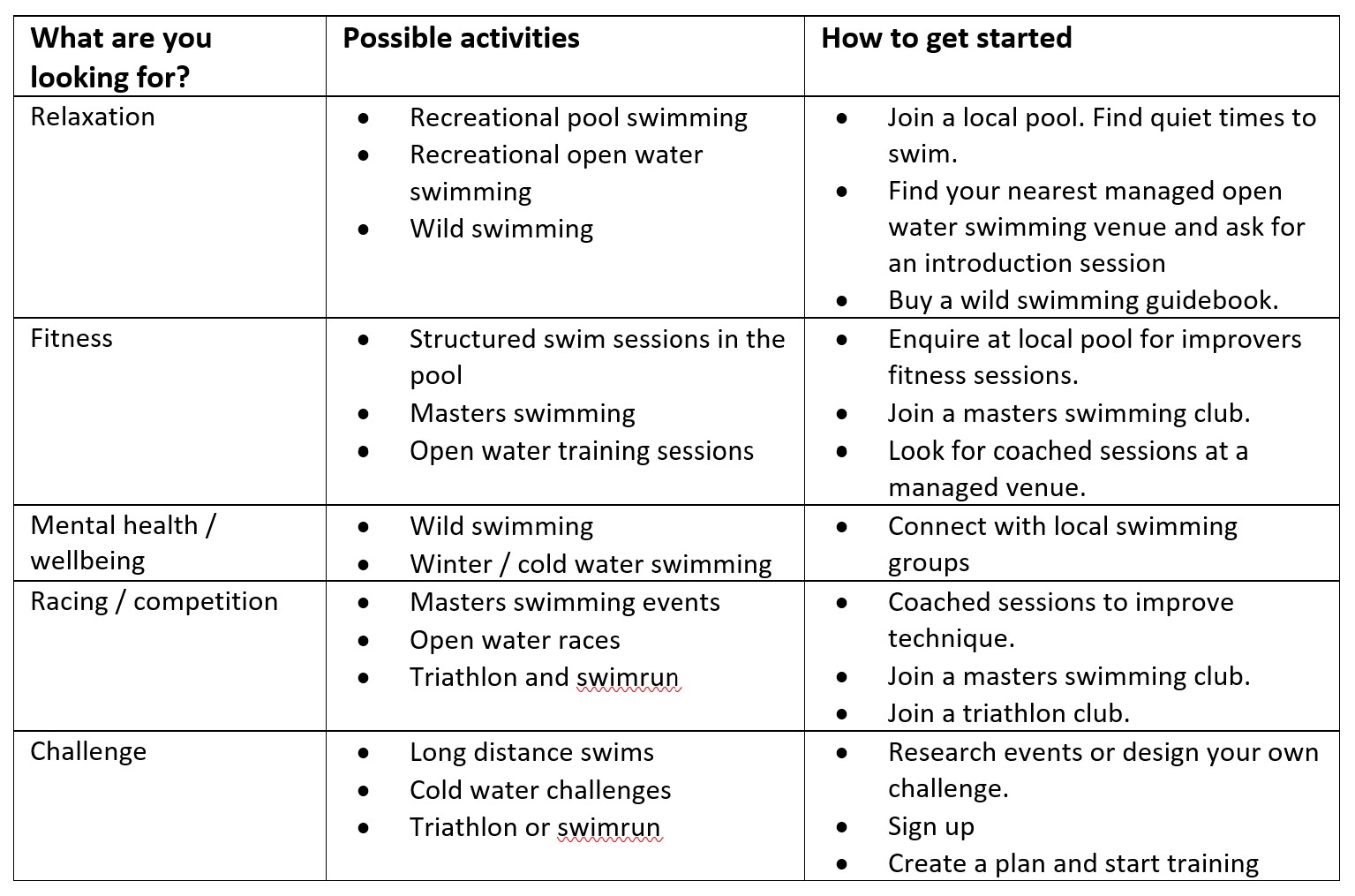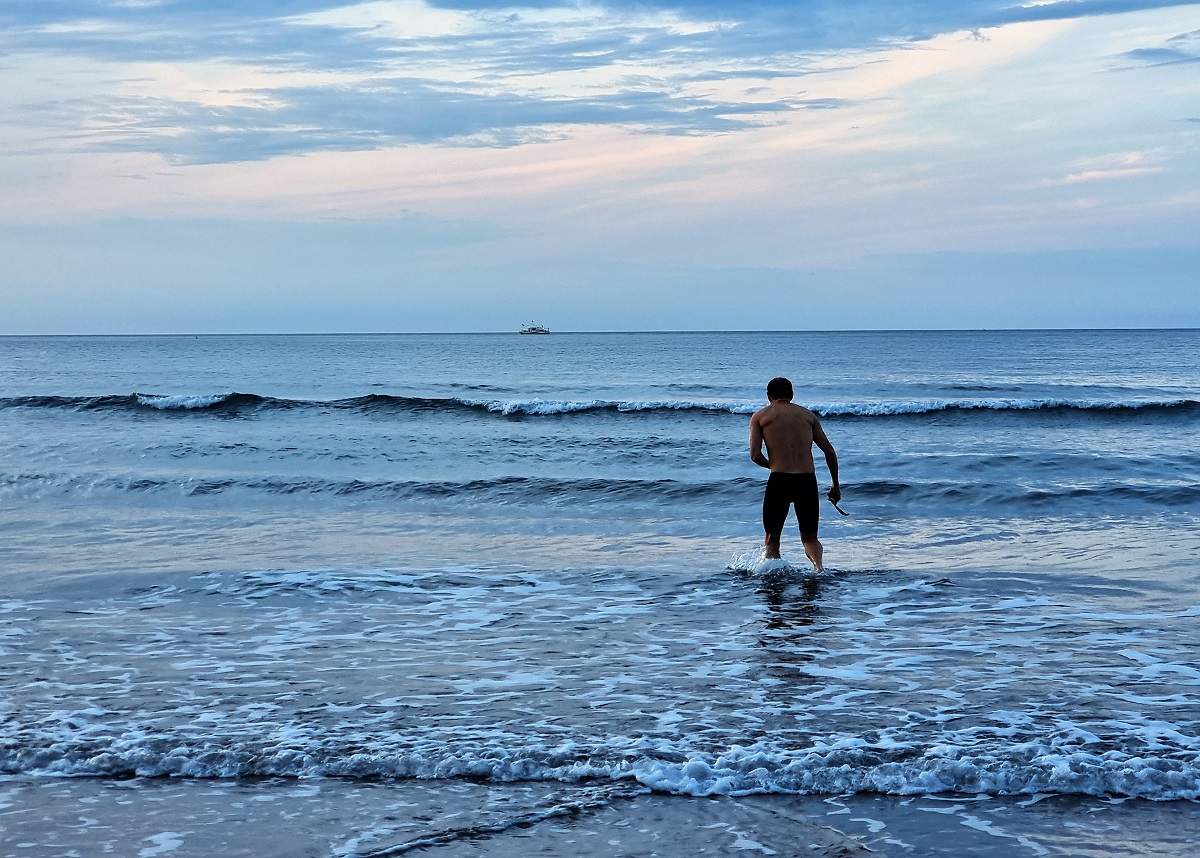How to start your swimming journey
I’m biased, but swimming is an amazing activity. You can turn to it at any age. You can use it for fitness, competition, long-distance challenges, relaxation, mental health, rehabilitation and fun. You can swim laps in a pool or take it outside to explore rivers, lakes and the ocean. You can break the ice and swim in zero-degree water and you can relax in warm thermal springs. You can swim all around our planet, whose surface is 70% covered in water, and make friends as you do so. Being able to swim gives you access to other water sports and activities such as surfing, kayaking, triathlon and swimrun.
But it can be challenging to make the most of the water and to access all its joys and benefits. Where do you start, how do you find out what’s out there, how do you become a more confident and competent swimmer?
Trial and error is one way. Seeking guidance and advice from more experienced swimmers, either directly or through reading or watching, is another.
A good first step is to reflect on what has drawn you to the
water. What are you looking for? List them all. You can swim for multiple
reasons. Here are some suggestions for getting started depending on why you
want to swim.

Sometimes the first step is the hardest. How do you go about finding a suitable swimming group or club? What if it feels intimidating to approach a group or go along to a swimming lake? Then, once you’ve got started, how do you stay motivated? If you’re preparing for a race or a challenge, how do you know your training is as effective as it could be?
I’d suggest reading and watching widely but critically. You will come across conflicting advice and opinions, and ideas that might be valid for some people, but not for you – and vice versa. Experiment with different things but do so in a planned way. If you change everything at once, you won’t know which change has made the difference. Talk to other swimmers. Ask what works for them. But again, keep your critical faculties engaged. What works for them may not work for you. As you swim, you will discover your own swimming strengths, as well as those things you’re not so good at, and they won’t necessarily be the same as the people you swim with.
Finally, try different activities within swimming, including those that take you out of your comfort zone. You may find hidden strengths and talents you didn’t know you had. There is so much to explore in swimming, both indoors and out.
Can I help? Why not book a free 15-minute call to talk about swimming?
Alternatively, book a 45-minute swim mentoring session.
